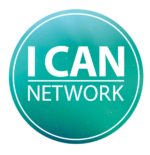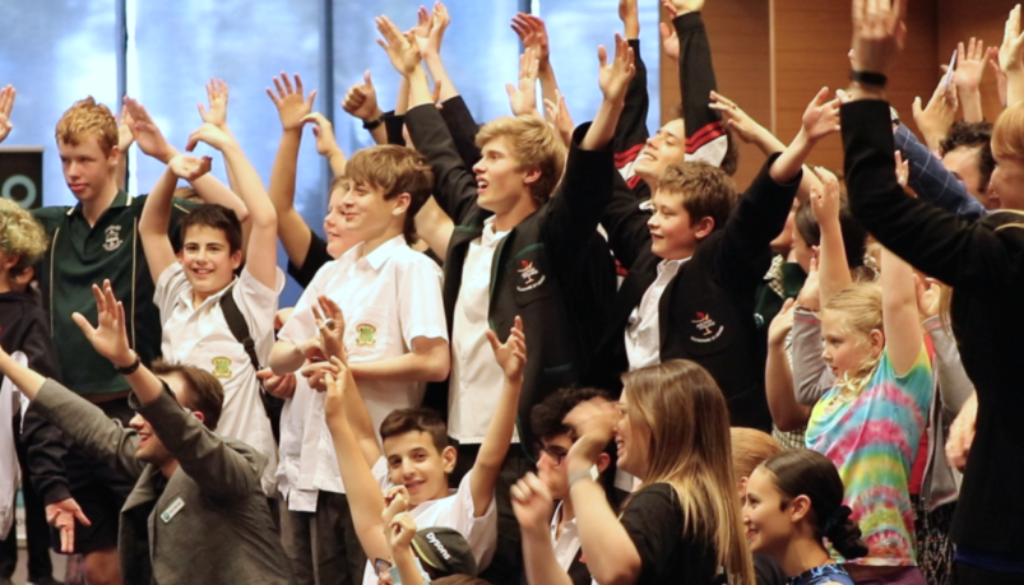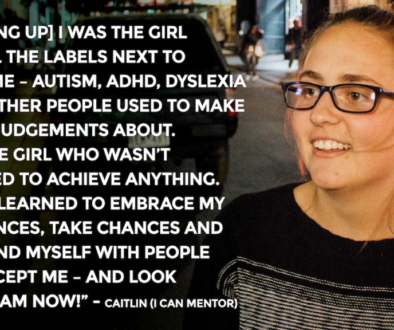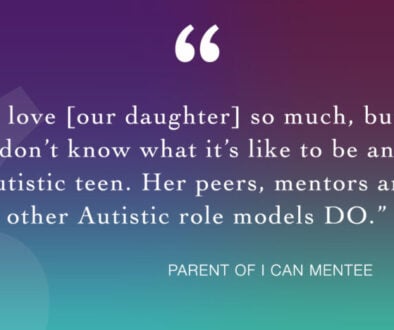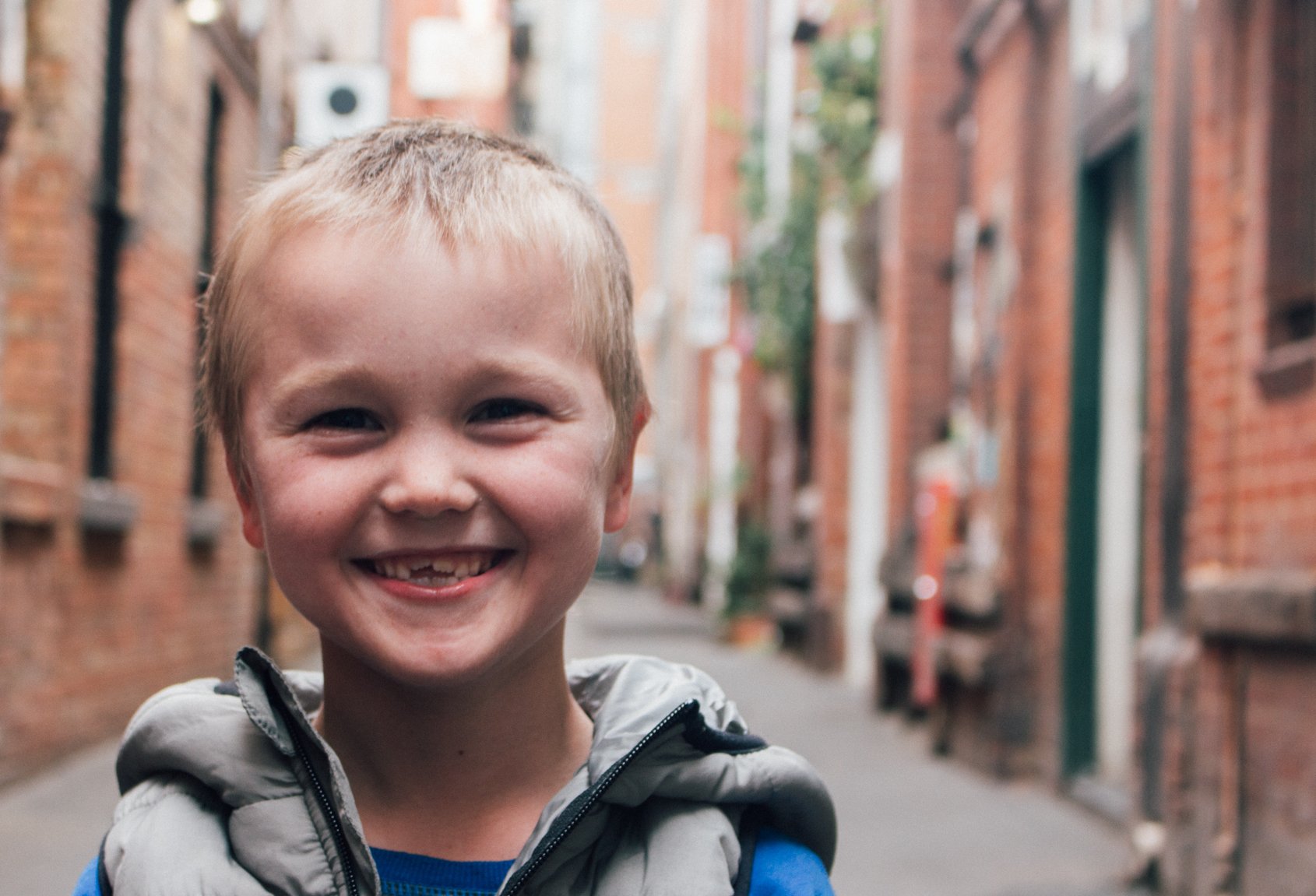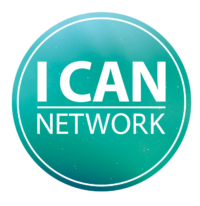NURTURING SELF-ESTEEM & PRIDE IN AUTISTIC YOUNG PEOPLE (RESOURCES INCLUDED)
For many years, we have been providing Autistic-led mentoring to Autistic young people across Australia. We know from our own lived experience and that of our mentees that adults – especially parents, carers and teachers — can play an important part in helping an Autistic young person develop self-esteem and pride. Here are some tips and reflections from our team of Autistic young adults and adults on how you can support that journey.
Accept and support them as they are. Autistic young people deserve to know that they are accepted for who they are as they are. Strive to understand how an Autistic young person experiences the world so that they can benefit from meaningful support and opportunities.
“Autistic young people often feel huge pressure to mask. Adults, too. A lot of that can come from the messages that society sends about Autism being bad or insisting on things like eye contact that might be uncomfortable for us but make us look ‘more normal’. It adds pressure for kids on the spectrum to hide who they really are.”
“Autistic young people do well if they can. They will feel pressure to hide who they are and to try and fit in. They need time to explore their identity during adolescence just like any other young person, however societal stigma around Autism may mean that they have extra obstacles to overcome and extra pressure to change who they are, which can harm development of self-esteem.”
Remind them of their strengths. So much of the societal narrative around Autism is around a “deficits model”. Recognising, leveraging and celebrating a young person’s strengths can go a long way toward helping them feel good about who they are and giving them confidence to take on new challenges.
“It is really important to highlight our strengths and give hope to us Autistic young people. We already know how we struggle, so it is far more helpful to show where we can succeed and what ways we can contribute to society.”
“There were lots of really obvious ways I struggled at school – I was bad at sport, I found the playground overwhelming, and I often had meltdowns. My Year 2 teacher always tried to position me in a positive light. I was a strong speller and he would ask me to proofread his work, which made me look cool and capable in front of my peers.”
Be that safe person who will listen. Many of us can point to one key adult who believed in us before we believed in ourselves. Never underestimate the positive impact that an adult can have when they offer unconditional support to an Autistic young person and listen without judgement.
“You know when people say, ‘One adult can make a difference in a child’s life?’ That was my story. My Year 8 English teacher was the first person to really see my strengths amongst my challenges, and as a 14-year-old with a lot of self-doubt, that really changed how I started to see myself.”
“My mum listens really well and she also gives me lots of space when I need it. No matter what, I know she loves me and I know she has my back.”
“In giving me unconditional love, my father also gave me the precious gift of self-worth and value. He cheered for me when I won at life, and when I failed he only reminded me of the parts I did really well.”
Show genuine interest in and seek opportunities around their passions. Autistic passions can be a source of immense joy, comfort, learning, connection with others and, in some cases, a pathway to our future study or employment. Showing a genuine interest in these passions is a powerful way to forge a deeper, trust-based relationship with an Autistic young person you care about. Look for opportunities for them to connect with others who share similar passions as well.
“My passions are like an anchor. I come back to them again and again, including when I am struggling and just need something that will soothe me. My parents have always encouraged my interests – even things that they didn’t know much about before (but do now!) Sometimes I’ll ask, ‘Mum, do you mind if I infodump?’ and when she responds, ‘Go ahead!’ it makes me feel this rush of joy.”
“Please don’t be embarrassed by your own passions, no matter how ‘unusual’. When adults are enthusiastic about the things they love, it makes Autistic kids feel like it’s okay to do the same.”
Encourage links to the Autistic community – for them and for you. It can be very comforting and validating to know that you are not alone and that there are other young people and adults who can relate to many of your experiences. I CAN’s Autistic-led online group mentoring and other events run by or predominantly staffed by Autistics can offer great opportunities for social connection and self-esteem. Your young person might want to check out blogs, books and vlogs by Autistic voices, including other Autistic young people. Seek out these types of resources for your own learning journey as well. Helpful hint: Search the hashtags #ActuallyAutistic and #AskingAutistics on social media.
“There are still so many stigmas and negative outlooks on Autism. I CAN Network has thrown those stigmas out the window. Bringing young Autistics together shows them that they aren’t alone in their journey, but seeing role models on the spectrum is just as important. Seeing others who have been through very similar circumstances and have come out of it a better person is so powerful. I don’t want to just tell young Autistics that it will get better, I want to show them through my story.”
“For anyone who wants to help make our world better for Autistics, here is my advice: seek out primary sources, just as you would if you were studying history. When it comes to Autism, the primary sources are people who are Autistic. Get in touch with I CAN, follow Autistic bloggers, connect with Autistics in your community. Ask questions, keep asking questions, challenge the stereotypes, move outside your comfort zone, learn more so that you will know and understand more.”
Communicate about Autism in respectful terms. As our dear friend Dr. Wenn Lawson notes:
“It’s important to talk about Autism in a positive way, not to deny the difficulties, but to open a way forward so those difficulties can become less so. A positive outlook enthuses, creates, restores and breeds hope.”
How adults communicate about Autism influences how Autistic young people see themselves – and how the rest of the world will treat them, too. Value their voices and involve them as much as possible in any decisions or activities that relate to them. Always presume competence and prioritise their privacy, dignity and sense of self. Embrace the value of diversity in all forms, including neurodiversity.
“It’s very important for people to talk positively about Autism because we are not burdens on society. We have so much to offer. Also, please don’t limit us because we are Autistic. We are always changing and learning. We have the capacity to achieve great things.”
“When you hear negative things about Autism your whole life, you start to believe them. The sooner we can hear positive things about ourselves like ‘That’s okay that you’re different. That makes you awesome!’ or ‘Wow, you totally looked at that in a different way!”, the sooner we will start to believe in ourselves.”
“One of the biggest reasons to talk about Autism positively is so that Autistic children can grow up feeling good about themselves and so that their peers understand that being Autistic is all right. The more people who hear positive things about Autism when they are young, the better chance we have of building a world that is inclusive.”


DOWNLOAD OUR 2 PAGE TIP SHEET. PDF
ADDITIONAL RESOURCES (NOT EXHAUSTIVE)
▪️ From I CAN, check out our annual Humans On The Autism Spectrum series, which profiles voices of Autistics in our I CAN family (with an emphasis on Autistic young people), as well as our YouTube video series led by young Autistic voices.
▪️ From The Autistic Self Advocacy Network, Welcome To The Autistic Community. There is a version specifically for adolescents and a more comprehensive version (all audiences) that was released in April 2020: (autisticadvocacy.org/book/welcome-to-the-autistic-community.
▪️ From Reframing Autism, Talking To Children About Autism, an Autistic-led, step-by-step guide on how to introduce and normalise differences from a very young age and help Autistic children embrace who they are. Webinar includes many references to additional resources.
▪️ From Yenn Purkis & Tanya Masterman, the newly released book, The Awesome Autistic Go-To Guide: A Practical Handbook for Autistic Teens and Tweens. Available globally. A valuable resource for adults as well.
▪️ Actually Autistic Blogs List (anautismobserver.wordpress.com). Hundreds of blogs by Autistics, with a function that allows you to search by age, location, focus of blog, amongst other dimensions.
Thank you to the Department of Health & Humans Services (DHHS) Victoria for supporting the development of this tip sheet and blog. You can fill out a survey on the effectiveness of these resources CLICK HERE.We appreciate your feedback.
© I CAN Network Ltd. 2020
